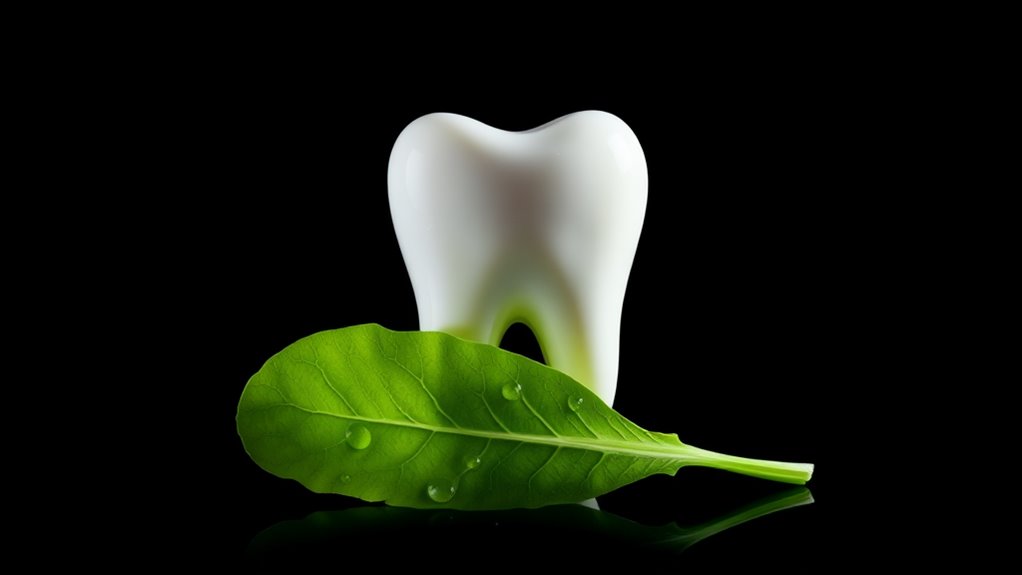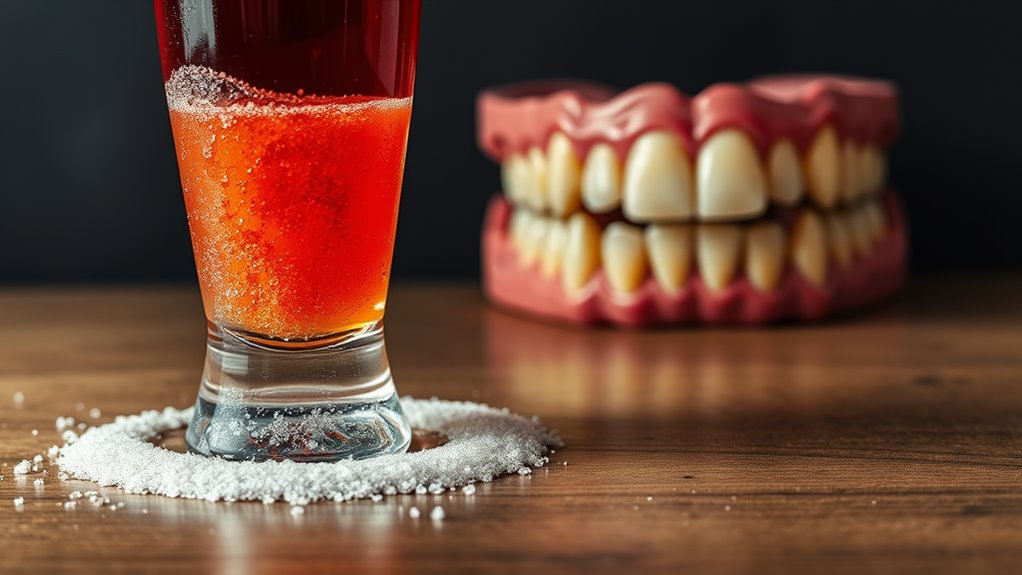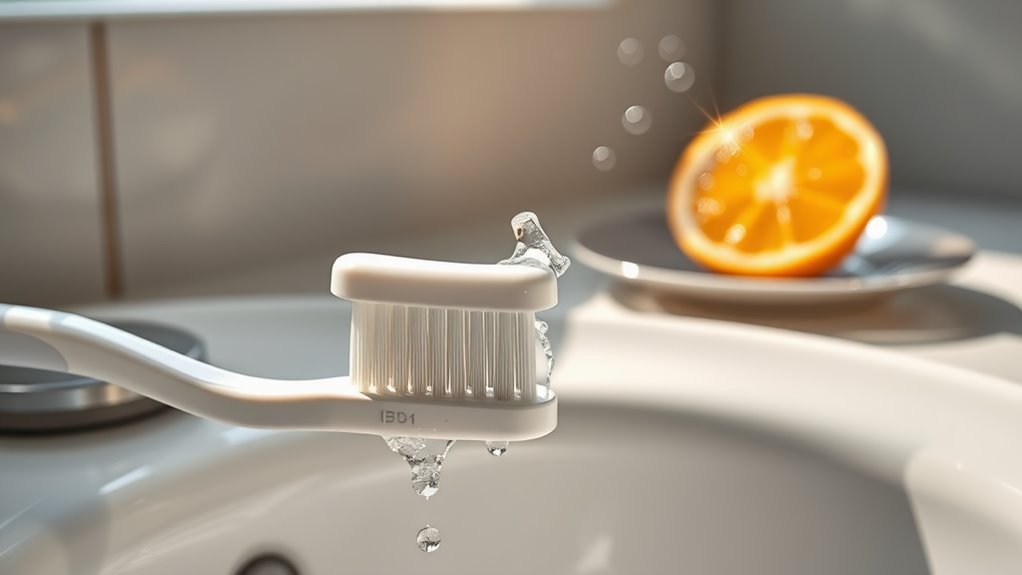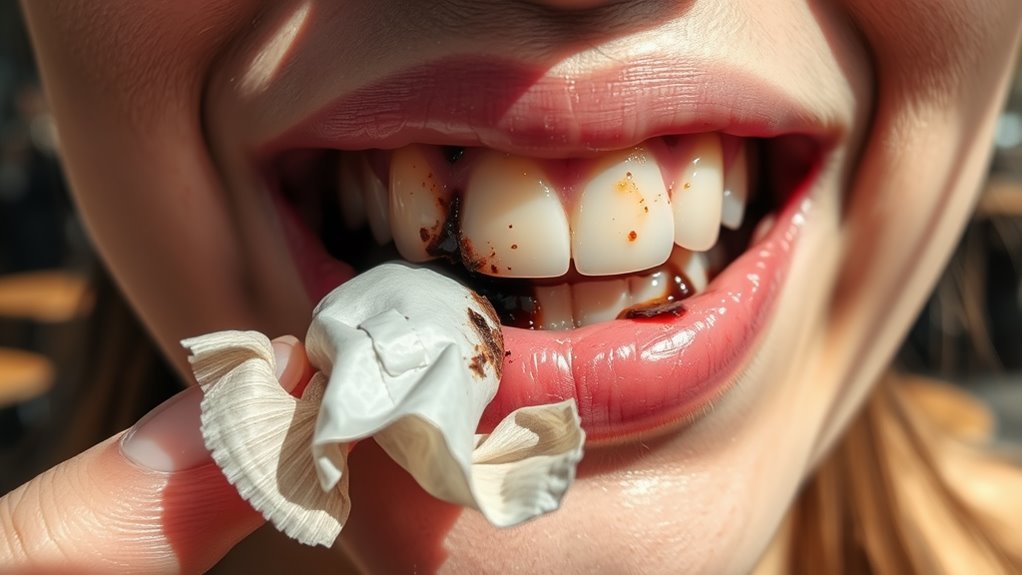Calcium Isn’t Enough! The Nutrient Your Teeth Are Missing!
While you’re diligently taking calcium supplements for your teeth, you might be missing vitamin D – the crucial nutrient that helps your body actually absorb and use that calcium. Without adequate vitamin D, your teeth can’t properly mineralize or fight off harmful bacteria, even with optimal calcium intake. You’ll need both nutrients, along with supporting players like vitamin K2, magnesium, and phosphorus, to maintain strong, healthy teeth. Let’s explore how these nutrients work together to protect your smile.
The Hidden Hero: Vitamin D’s Role in Dental Health
Although many people focus on calcium for dental health, vitamin D plays an equally crucial role in maintaining strong teeth and healthy gums. Without adequate vitamin D, your body can’t properly absorb and use calcium, leaving your teeth vulnerable to decay and damage.
You’ll find vitamin D naturally in foods like fatty fish, egg yolks, and fortified dairy products. Your body also produces it when your skin is exposed to sunlight.
When you get enough vitamin D, it helps your body fight oral bacteria and reduce inflammation in your gums. It strengthens your tooth enamel and supports the remineralization process that repairs minor damage to your teeth.
If you’re not getting sufficient vitamin D, consider talking to your dentist about supplements to protect your dental health.
Why Calcium Alone Falls Short for Your Teeth
While calcium is essential for maintaining strong teeth, relying on it alone won’t guarantee optimal dental health. Your body needs several other nutrients to properly absorb and utilize calcium for tooth strength.
| Nutrient | Why It Matters |
|---|---|
| Vitamin K2 | Directs calcium to bones and teeth |
| Magnesium | Activates vitamin D and aids calcium absorption |
| Phosphorus | Forms tooth enamel with calcium |
| Vitamin A | Helps develop tooth structure |
Without these supporting nutrients, the calcium you consume may not reach your teeth effectively. You might even experience calcium deposits in soft tissues instead of teeth and bones. That’s why it’s crucial to focus on a balanced diet that includes all these complementary nutrients, rather than just increasing your calcium intake.
Understanding the Calcium-Phosphorus Partnership
Calcium and phosphorus work as inseparable partners in building and maintaining your tooth enamel. When you consume these minerals together, they form hydroxyapatite crystals, the primary building blocks of your teeth’s protective outer layer.
Without adequate phosphorus, your body can’t properly utilize calcium, even if you’re getting enough of it.
You’ll find this dynamic duo naturally occurring in foods like dairy products, fish, and nuts. Your body maintains a delicate ratio between these minerals, typically 2:1 calcium to phosphorus, to ensure optimal dental health.
When this balance gets disrupted, your teeth become more vulnerable to decay and damage. That’s why it’s crucial to focus on both minerals in your diet, not just calcium alone.
Signs Your Teeth Need More Than Just Calcium
How can you tell if your teeth need more than a calcium boost? Watch for key warning signs like tooth sensitivity to hot and cold foods, visible white spots on your teeth, or frequent cavities despite good oral hygiene.
These symptoms often indicate your teeth aren’t getting enough phosphorus to work with calcium.
You might also notice your teeth feeling rough or looking slightly transparent at the edges. If your gums bleed easily or you’re experiencing delayed healing after dental procedures, your body may be struggling to properly mineralize your teeth.
Pay attention to jaw pain or loosening teeth, as these can signal mineral imbalances. When you spot these signs, it’s time to evaluate both your calcium and phosphorus intake through diet and supplements.
Simple Ways to Balance Your Dental Nutrients
Getting the right mix of dental nutrients doesn’t need to be complicated. You can easily incorporate tooth-friendly foods into your daily meals while maintaining a balanced diet.
Focus on combining calcium-rich foods with those high in vitamin D, phosphorus, and magnesium to maximize absorption and benefits for your teeth.
-
Start your day with vitamin D-fortified yogurt topped with almonds and seeds for a powerful combination of calcium, protein, and healthy fats.
-
Include fatty fish like salmon or mackerel in your lunch or dinner to boost vitamin D levels while getting essential omega-3s.
-
Snack on crunchy vegetables like carrots and celery, which naturally clean your teeth while providing vital minerals and vitamins.
Remember to drink plenty of water throughout the day to help distribute these nutrients effectively throughout your body.




